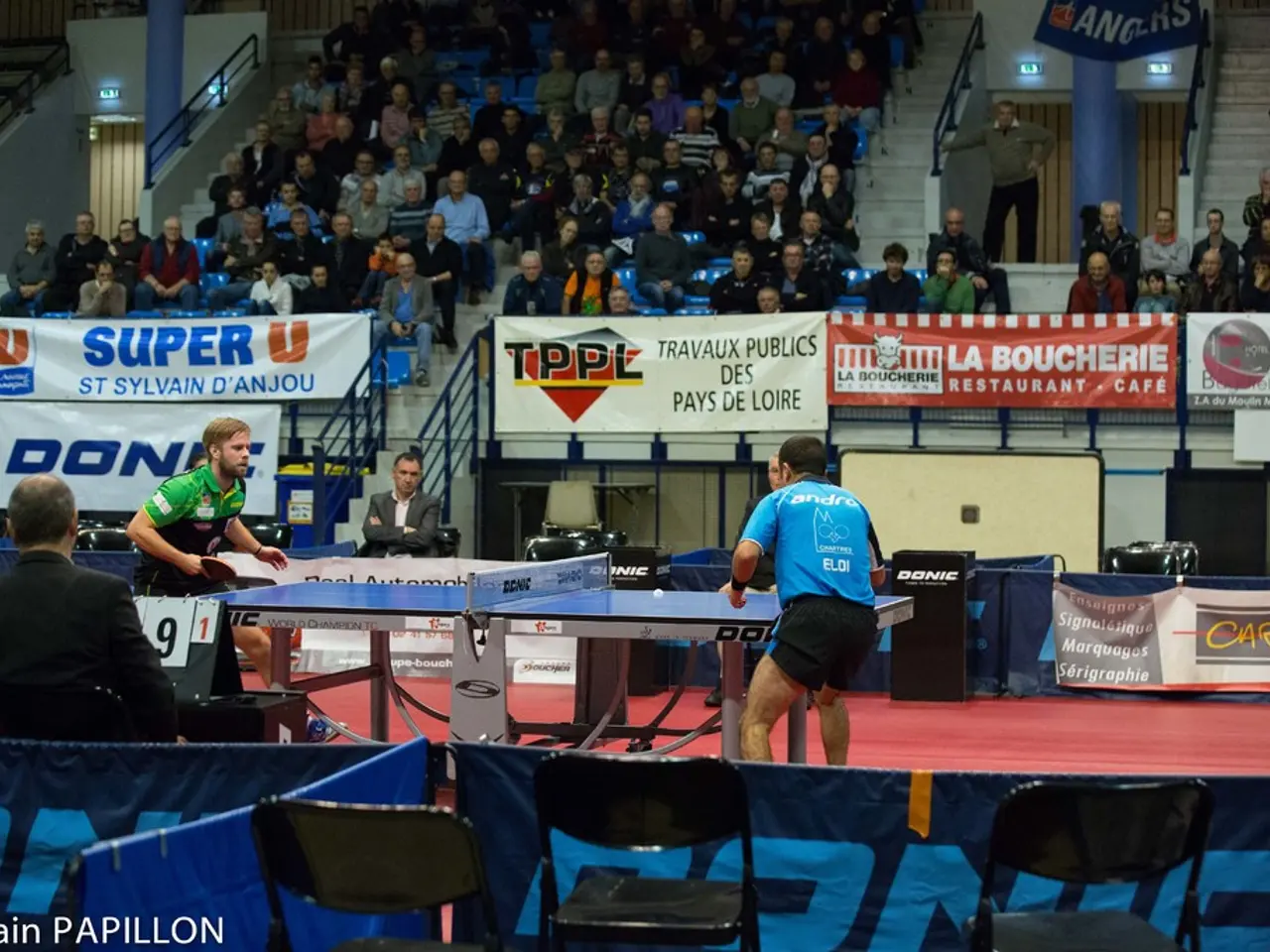Wagering Outcomes: Strategies and Expert Insights
In the thrilling world of sports betting, result wagers have gained popularity among enthusiasts. These bets, unique to sports like football, handball, and ice hockey, involve predicting the exact final score at the end of regular time. To increase the chances of success, a comprehensive approach is necessary, as outlined below.
Offensive and Defensive Qualities
In sports such as ice hockey, goal total bets depend heavily on the attacking potency and defensive solidity of each team. A team with strong offensive players but weaker defense may indicate a high-scoring game, favoring over-goal bets, whereas a defensively disciplined team might lead to lower scoring and under-goal bets. Similarly, in football and handball, assessing team form, injury status, and how balanced their offense and defense are is crucial.
Tactical Orientation
Understanding how teams approach a game tactically is key. Teams with an aggressive, high-pressing style often push the pace and increase goal opportunities, while teams focused on defensive resilience might slow the game down, opting for counterattacks or tight marking. For example, in football, coaches emphasizing aggressive pressing and quick attacking—allied with mental toughness and determination—can shift momentum and affect match results.
Game Flow and Momentum
The progression and tempo of the game, including moments of sustained pressure or physical contests, affect outcomes. Teams that maintain energy and fight for every moment often perform better in clutch moments, impacting final results. This is also influenced by situational factors like referee decisions, substitutions, and possible penalties, which can dramatically alter the course of a match.
Contextual Factors
External variables such as injuries, suspensions, home advantage, weather conditions (especially in outdoor sports), and psychological factors (team cohesion, morale) all affect the likelihood of outcomes and should be factored into betting decisions.
Analytical and Data-Driven Approaches
Professional betting syndicates use advanced data analytics, including tracking team performance, player form, injury reports, and even public betting trends, to identify value bets before markets adjust. They incorporate real-time data on tactical setups and player availability to guide their strategic wagers.
In sum, effective result wagering requires a composite evaluation of team strengths and weaknesses, tactical schemes, game momentum, and the broader context—blended with quantitative analytics. This comprehensive approach helps better predict match outcomes, whether it is the winner or total goals/points scored.
However, it's essential to remember that even with careful analysis, result wagers come with a high risk of losing a bet due to their specificity. Unforeseen events like a red card in football can ruin all planning in Result Wagers. It's crucial to consider realistic outcomes and not be swayed by high odds.
At many betting providers, it's possible to combine several results within a single match. Only one of the selected results needs to occur, but the overall odds decrease with each additional result. This can be a strategy to increase the chances of a successful bet, but it also increases the risk.
In unequal games, it's possible for an underdog to adopt a defensive strategy to prevent a high score, leading to a narrow victory. When two teams are evenly matched, a 1:1 score is possible, or one team might just edge it. Predicting a higher score can be risky if both teams largely cancel each other out.
In close duels between similarly strong opponents, it can be challenging to predict the exact result due to small lapses in concentration, individual errors, or controversial referee decisions. A team that focuses on ball possession and feels comfortable in midfield can maintain a high tempo of dangerous attacks, but this does not automatically mean that they will achieve a high final score. If a favorite goes into an early lead, they may choose to play more cautiously, reducing the likelihood of a high-scoring game.
In the end, result wagers offer the potential for attractive odds because they are less likely than conventional win bets. But they also come with a high risk of losing a bet. It's crucial to approach these bets strategically, considering all factors, and to always gamble responsibly.
- In the field of sports-betting, result wagers on sports like football, handball, and ice hockey have seen increased popularity, focusing on predicting the exact final score at the end of regular time.
- Assessing offensive and defensive qualities is crucial for these wagers; a defensively disciplined team might yield under-goal bets, while a team with stronger offensive players but weaker defense might favor over-goal bets.
- Understanding each team's tactical orientation is essential, as aggressive teams may push the pace and increase goal opportunities, while teams focused on defensive resilience might affect the total goals scored.
- Game flow, momentum, and situations like referee decisions, substitutions, and possible penalties play a significant role in determining outcomes, potentially altering the course of a match.
- External factors, such as injuries, suspensions, home advantage, weather conditions, team cohesion, and morale, can all impact the likelihood of match outcomes and should be considered.
- Professional betting syndicates use a combination of advanced data analysis, team performance tracking, player form monitoring, injury reports, and public betting trends to identify value bets, incorporating real-time data on tactical setups and player availability for strategic wagers.








